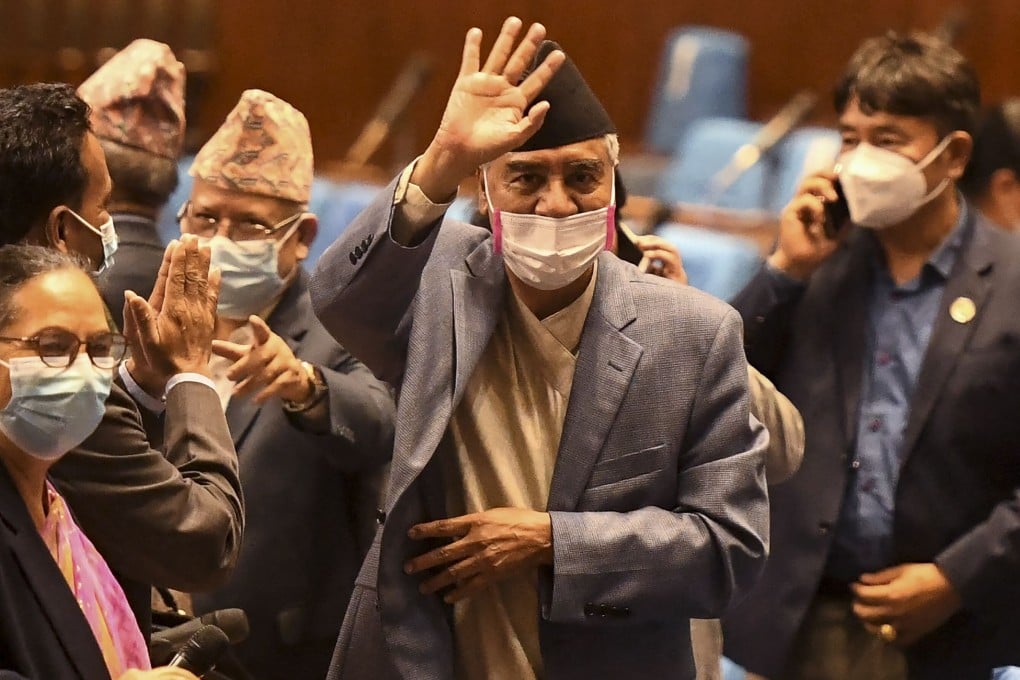Advertisement
Will Nepal’s new ‘pro-India’ prime minister hit reset on its China ties?
- Sher Bahadur Deuba’s appointment is widely expected to bring Kathmandu closer to New Delhi once more after his predecessor favoured ties with Beijing
- Analysts say the 75-year-old four-time former leader will strive for diplomatic balance, while also strengthening ties with the US and its allies
Reading Time:4 minutes
Why you can trust SCMP
4

After months of political uncertainty, Nepal had a change of leadership last week in a move that analysts say could hit the reset button on the Himalayan nation’s ties with India and China.
Sher Bahadur Deuba, 75, became Nepal’s prime minister for the fifth time on July 13 after his predecessor K.P. Sharma Oli was ousted by the country’s highest court.
Oli, in power since 2018, had twice tried to dissolve parliament in recent months amid battles with senior leaders of his own party. Both attempts were overturned by Nepal’s Supreme Court, however, which on July 12 removed Oli from his post.
Advertisement
Deuba – who was previously appointed prime minister in 1995, 2001, 2004 and 2017, but has never served a full term – is widely expected to bring Nepal closer to India once again after Oli favoured ties with China, its other giant neighbour to the north.
His appointment was confirmed on Sunday, when he won a crucial vote of confidence in parliament allowing him to continue in power until general elections set to be held next year.
In the balance
Nepal had been moving closer to China under Oli, who welcomed Chinese President Xi Jinping to the country on a state visit in 2019. That trip ended with the two sides agreeing to “elevate” ties and saw the signing of 18 agreements, along with Xi’s announcement of US$493 million in aid.
Advertisement
Select Voice
Select Speed
1.00x